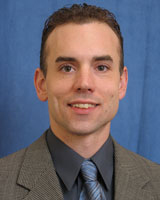In May and June, the International Institute for Restorative Practices (IIRP) participated in three important national conversations on major issues facing the nation’s communities, colleges and schools.
“Restorative practices is very much becoming accepted as an emerging social science,” comments IIRP President John Bailie, Ph.D. “Some of the best minds around the country accept that our field has some of the most innovative and promising solutions to civil society’s biggest challenges.”
On June 2, Dr. Bailie joined researchers and practitioners from diverse sectors at the Robert Wood Johnson Foundation (RWJF) Resilience Roundtable: Taking Action to Build Stronger Communities, to develop a shared agenda to advance the field of resilience science, which looks at how individuals and communities can adapt to hardship and trauma.
Dr. Bailie believes IIRP projects, such as Toward a Restorative City: Focus on Schools and Sustainability for the City of Detroit, offer a promise for helping communities build strength from within. The roundtable was convened by RWJF and RAND Corporation to help guide future funding strategies for research and practice.
June 20-21, Dr. Bailie participated with university presidents and prominent thought leaders to discuss critical issues facing the future of higher education, such as diversity, sexual assault on campus and free speech, at The New York Times Higher Education Leaders Forum. He saw excitement about the potential of restorative practices to provide a valuable approach to these concerns.
And in May, Dr. Bailie teamed up with fellow restorative practices expert Nancy Riestenberg, school climate specialist for the Minnesota Department of Education, for a national conference call of the U.S. Department of Education, Office of Civil Rights (OCR).
Says Dr. Bailie, “There’s now general acceptance that zero tolerance has failed; there’s acceptance that there are great racial disparities in discipline. The question is what do you do about it. Restorative practices has been shown to be a very powerful alternative to punitive sanctions, and there’s lots of data to show they bring about a dramatic decrease in suspensions and expulsions.”
Dr. Bailie and Riestenberg discussed restorative practices and answered questions with representative of OCR offices in Chicago, Kansas City, Philadelphia, San Francisco, Denver, Boston, Atlanta, Dallas, Cleveland, Seattle, Washington, D.C., and New York.
“Up to now, restorative practices has focused a lot on unity, connection, relationships,” says Dr. Bailie. “But currently, others are asking us for direct assistance to meet some of civil society’s most challenging problems, such as sexual assault on higher education campuses, racial discipline disparities in schools, immigration and responses to other community and environmental problems. Now is the time to show that restorative practices offers real concrete and compelling solutions.”
Follow Dr. John Bailie on twitter.

